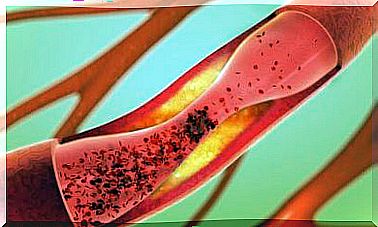8 Things Not Said About Menopause

Find out what you don’t know about menopause. This stage of life can lead to a decline in social life, as most women feel the need to devote more time to themselves. From this point of view, this aspect is rather positive.
The menopause is a normal stage in a woman’s life, which happens between 45 and 55 years.
At this cycle, a woman’s ovaries stop producing eggs and they can no longer get pregnant.
The production of the hormones estrogen and progesterone decreases, and other changes also occur, which manifest themselves in symptoms that can last for years.
The most common symptoms of menopause are hot flashes, sweating, or sudden changes in mood, among others.
In addition to these signs, there are other aspects of menopause that the majority of women are unaware of and which they should take into account to learn all about this stage of their life.
In this article, we’re going to share with you 8 important things to know about menopause that most women don’t know.
There are changes in the heartbeat
The palpitations of the heart may be altered as soon as a woman begins pre-menopause.
During this stage, many women may begin to feel that their palpitations are faster and sometimes they are symptoms of a heart problem.
According to experts, this symptom can be the result of hormonal flows.
Bad cholesterol can increase

Estrogens are the hormones responsible for regulating female periods, controlling LDL cholesterol (bad cholesterol) levels and increasing levels of good cholesterol (HDL).
By decreasing the production of these hormones during menopause, bad cholesterol levels tend to rise, while good cholesterol levels begin to drop.
The good news is that it is possible to prevent this by adopting a healthy lifestyle, during the years leading up to menopause.
Menopause decreases the desire for social life
Menopause is a stage that tends to be introspective given all the changes in morale and emotions.
This change becomes more noticeable in people who are extroverted, as they begin to adopt attitudes that can affect their social life.
Upon reaching this stage, most women begin to think about themselves and feel the desire to devote more time to themselves.
In this sense, it can be something very positive, because women can motivate themselves to have experiences that they would not have allowed themselves before, since they devoted their energy to making others happy.
It’s time to go “green”
Many foods on the market have chemical concentrations that can block hormones and cause imbalances in women who are going through the menopause stage.
It is important to start consuming foods of organic origin and to avoid at all costs those that contain parabens, phthalates and Bisphenol A.
A good option is to increase your intake of fruits and vegetables, which are the main sources of nutrients, and which cope with the symptoms of menopause.
Hair also suffers from certain consequences

The hormonal changes that occur during menopause affect the health of the hair, making it thinner, more fragile, drier, and causing it to fall out.
In these cases, it is important to improve your diet, consume more vitamins, minerals and proteins, in addition to avoiding the use of chemicals, hair dryers or hair straighteners.
Sensitivity increases
Hormonal imbalance brings with it an emotional roller coaster that can generate greater sensitivity and a dramatic increase in libido.
The desire to sleep increases
Since menopause causes so many hormonal changes, it is not strange that the need for sleep increases.
The need for a nap may be felt, although it should not exceed 30 minutes, as it could cause alterations in the normal sleep cycle.
Hot flashes
It is one of the most well-known symptoms of menopause, but few people know how to deal with it to prevent it from affecting the quality of life.
It is important to note that this annoying feeling of heat appears mainly at night and prevents you from enjoying restful sleep.
The main consequences are manifested the next day, as this increases irritability and generates signs of fatigue on the skin.
What to do ? In this case, it is best to use loose pajamas, sheets and covers made of breathable materials, and if necessary have a fan near the bed.
Remember that relaxation techniques can also work.









